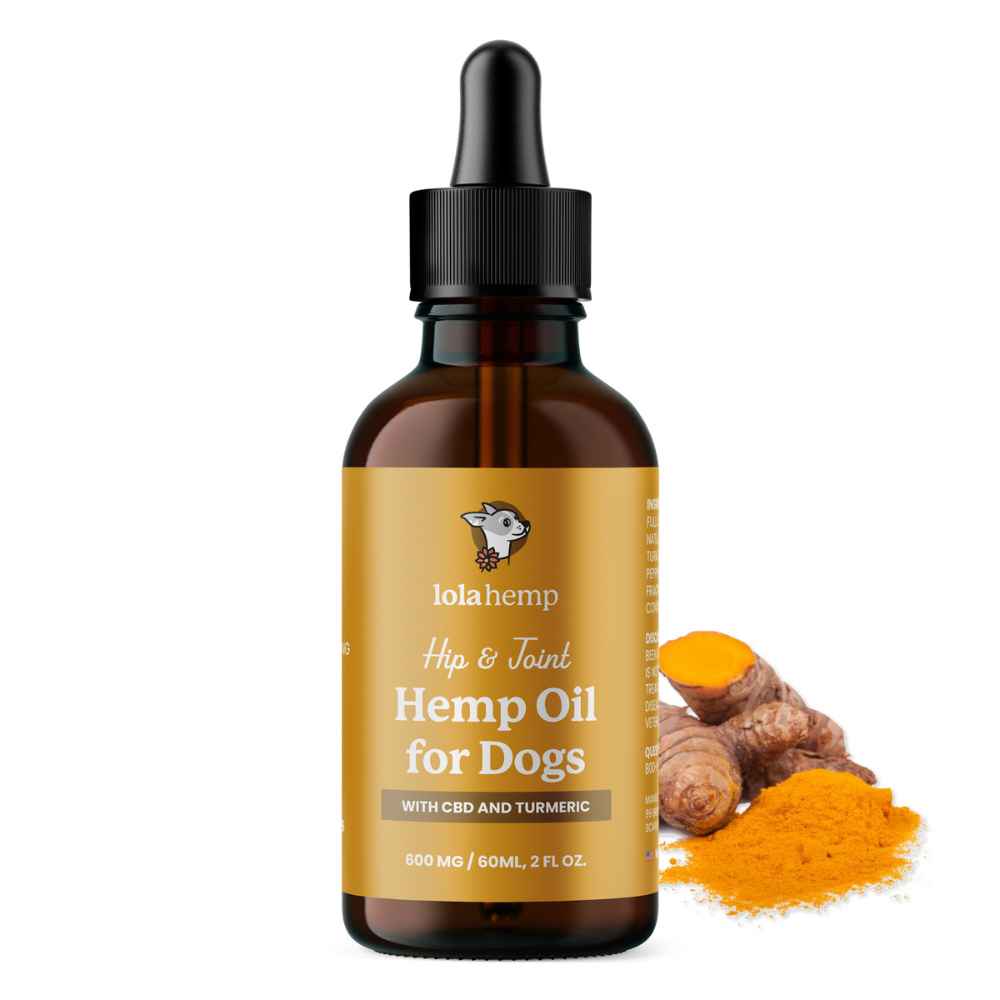Turmeric, a bright yellow spice commonly used in Indian cuisine, has gained significant attention in recent years for its potential health benefits for both humans and animals. Within turmeric, the active compound curcumin is believed to offer various medicinal benefits, including antioxidant properties and the potential to support a healthy inflammatory response.
In the context of canine health, turmeric-curcumin has garnered interest among many pet owners and veterinarians as a natural supplement to support overall well-being and address various health concerns such as knee osteoarthritis and joint discomfort. It ranks among the best natural anti-inflammatories for dogs, especially when paired with a small amount of black pepper which can activate the compounds in turmeric.
This comprehensive guide will explore the uses, potential benefits, safety considerations, recommended dosage, treatable conditions, and possible side effects of turmeric curcumin for dogs.
Understanding Turmeric Curcumin
Turmeric is a flowering plant of the ginger family, known for its rhizomes that are dried and ground into a powder to produce the vibrant yellow spice. Curcumin, the primary active ingredient in turmeric, is responsible for its distinctive color and many of its health-supporting properties. Research suggests that curcumin is a powerful antioxidant and may help maintain a balanced inflammatory response by interacting with various molecular targets involved in inflammation pathways.
Is Turmeric Good for Your Dog?
Turmeric, specifically its active compound curcumin, is generally considered safe and may offer benefits for canines when used in moderation and under the guidance of a veterinarian. While turmeric has potential health-promoting properties, including antioxidant and inflammatory response support, its efficacy and safety can vary based on factors such as the dog's health status, existing medical conditions, and any concurrent medications.
Potential Benefits of Turmeric for Dogs
Supports a Healthy Inflammatory Response
Curcumin has been studied for its potential to help support a healthy inflammatory response. Inflammation in dogs is often associated with various health conditions such as arthritis, allergies, and inflammatory bowel disease. Some research suggests that turmeric may help promote mobility and comfort in pets with these conditions.
Antioxidant Activity
Turmeric contains antioxidants that may help combat oxidative stress and neutralize free radicals in the body. Since oxidative stress contributes to aging and the development of various diseases in dogs, turmeric supplementation could support cellular health and overall wellness.
Potential Pain Relief
The properties of turmeric that influence inflammation may also contribute to pain relief for dogs experiencing joint discomfort, injuries, or stiffness. While results can vary, many pet owners have reported that turmeric supplementation helps improve their dog’s mobility.
Digestive Health Support
Turmeric has been traditionally used to support digestive health in humans, and similar benefits may extend to canines. Some studies indicate that curcumin could help maintain a healthy inflammatory response within the gastrointestinal tract, potentially supporting dogs with digestive discomfort.
Immune System Support
Turmeric contains compounds that may support immune function and help maintain overall health and resilience in canines.
Brain Health Benefits
Some research suggests that curcumin may have neuroprotective effects and could support brain health in dogs, particularly older canines experiencing cognitive decline.

Safety Considerations
When considering turmeric for your dog, safety is a priority. Here are key considerations:
Consultation with a Veterinarian
Before starting turmeric supplementation, consult with a veterinarian to ensure it is appropriate for your dog’s specific health condition.
Potential Medication Interactions
Turmeric may interact with certain medications, such as blood thinners and anti-inflammatory drugs. If your dog is on medication, discuss turmeric supplementation with your vet.
Possible Gastrointestinal Upset
Some dogs may experience digestive discomfort when introduced to turmeric. Start with a small amount and monitor for any adverse reactions.
Dosage and Administration
Turmeric should be given in moderation. A common starting dosage is around 50 milligrams per 10 pounds of body weight, administered once or twice daily. However, exact dosages should be determined based on veterinary recommendations.
Conditions That May Benefit from Turmeric
- Arthritis & Joint Health: Turmeric may support joint health and mobility in aging dogs.
- Allergies & Skin Health: The anti-inflammatory properties of turmeric may help alleviate allergic responses.
- Digestive Support: Turmeric may contribute to a healthy gastrointestinal system.
- Cognitive Function: Some studies suggest turmeric may support cognitive health in senior dogs.
- Heart Health: The antioxidant properties of turmeric may support cardiovascular wellness.

Conclusion
Turmeric may offer various benefits for dogs, including support for a healthy inflammatory response, antioxidant activity, and overall wellness. While research suggests its potential value in canine health, results may vary, and it should be used under veterinary guidance. As with any supplement, ensuring proper dosage and monitoring for side effects is crucial to keeping your pet safe and healthy.
Turmeric Curcumin for Dogs: FAQs
Is turmeric safe for dogs?
Yes, turmeric is generally safe for dogs when given in moderation and under veterinary supervision.
What are the main benefits of turmeric for dogs?
Turmeric supports a healthy inflammatory response, promotes mobility, offers antioxidant protection, and may benefit digestion and cognitive health.
Can turmeric help with arthritis in dogs?
Yes, turmeric may help reduce inflammation and discomfort in dogs with arthritis, improving joint mobility and quality of life.
Can turmeric upset a dog’s stomach?
Some dogs may experience mild digestive upset when starting turmeric; introduce it slowly and consult your veterinarian if issues occur.
How much turmeric should I give my dog?
A typical starting amount is 50 milligrams per 10 pounds of body weight once or twice daily, but your veterinarian can provide specific dosage guidance.









